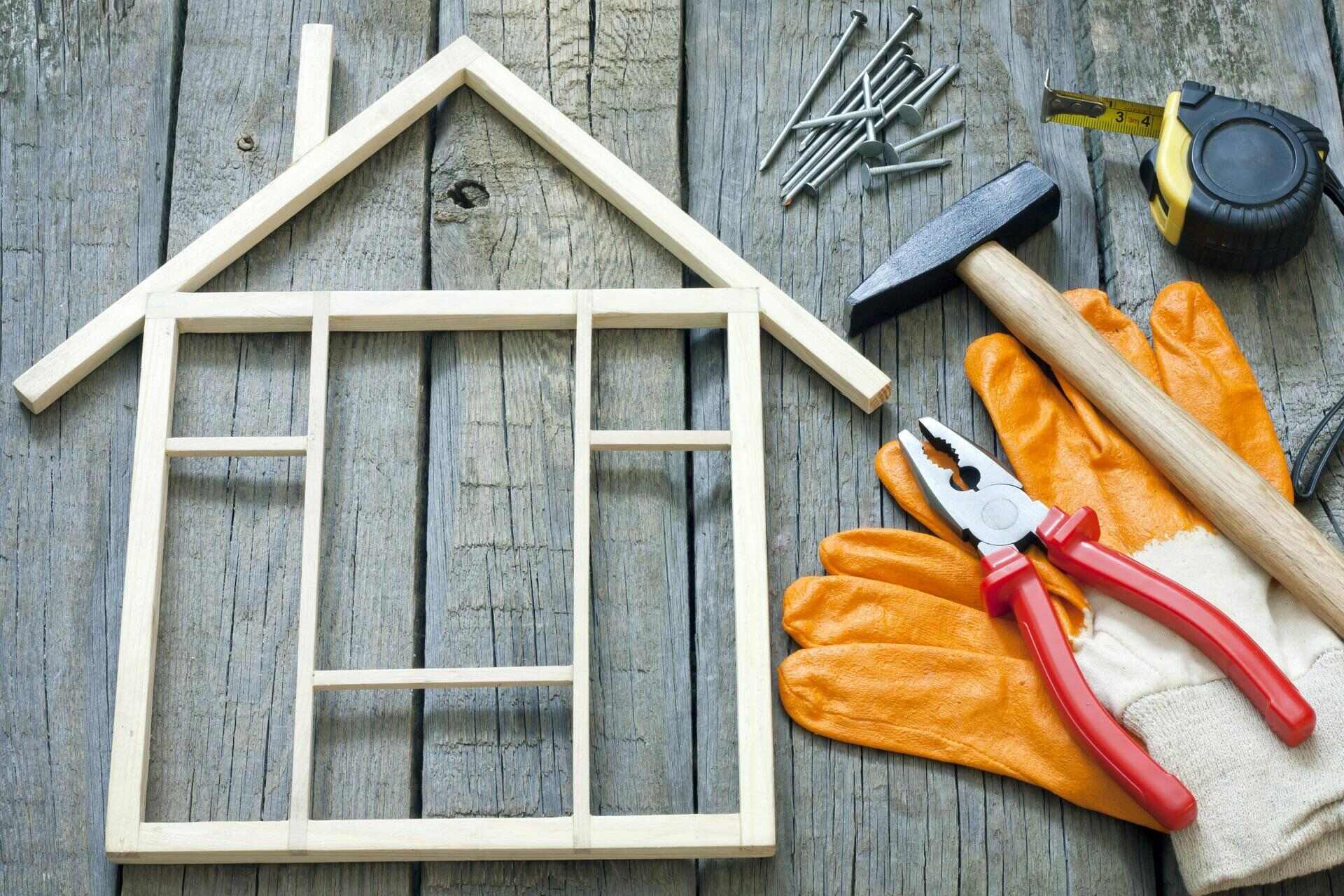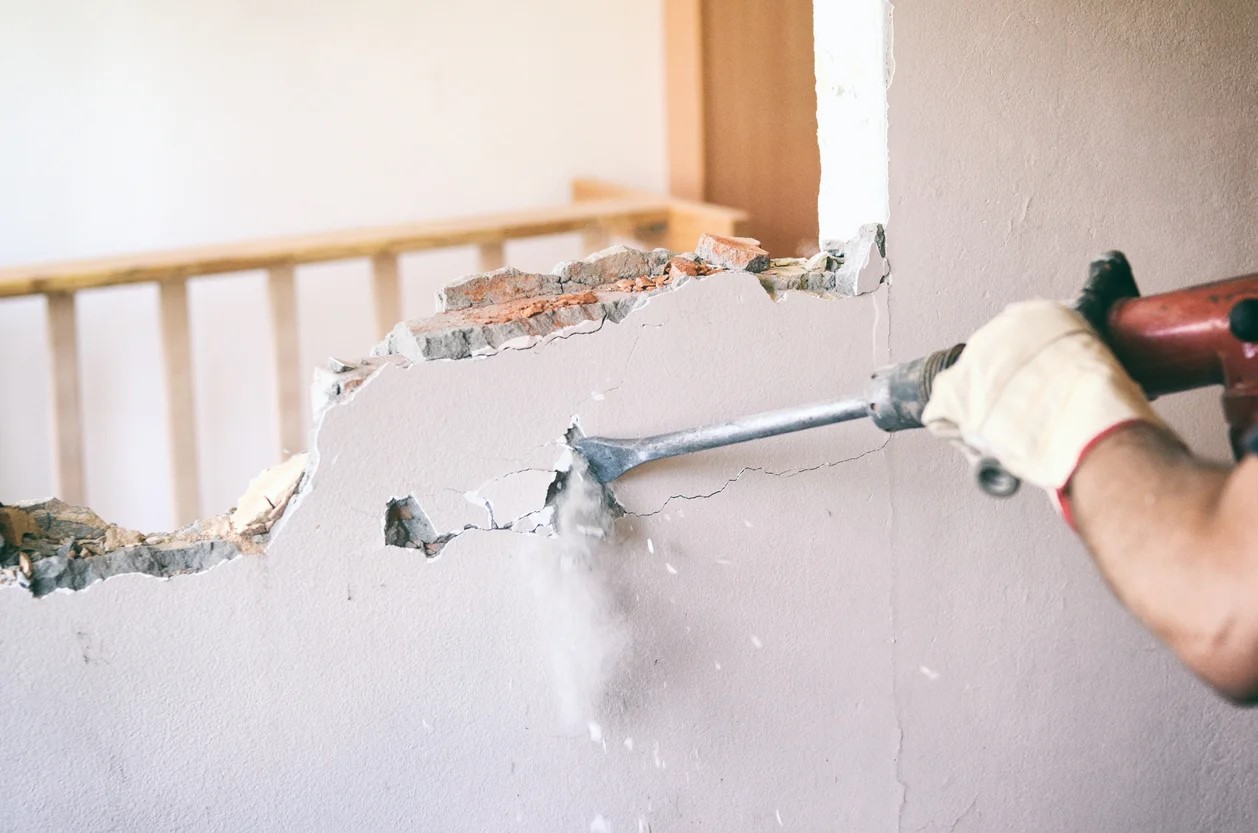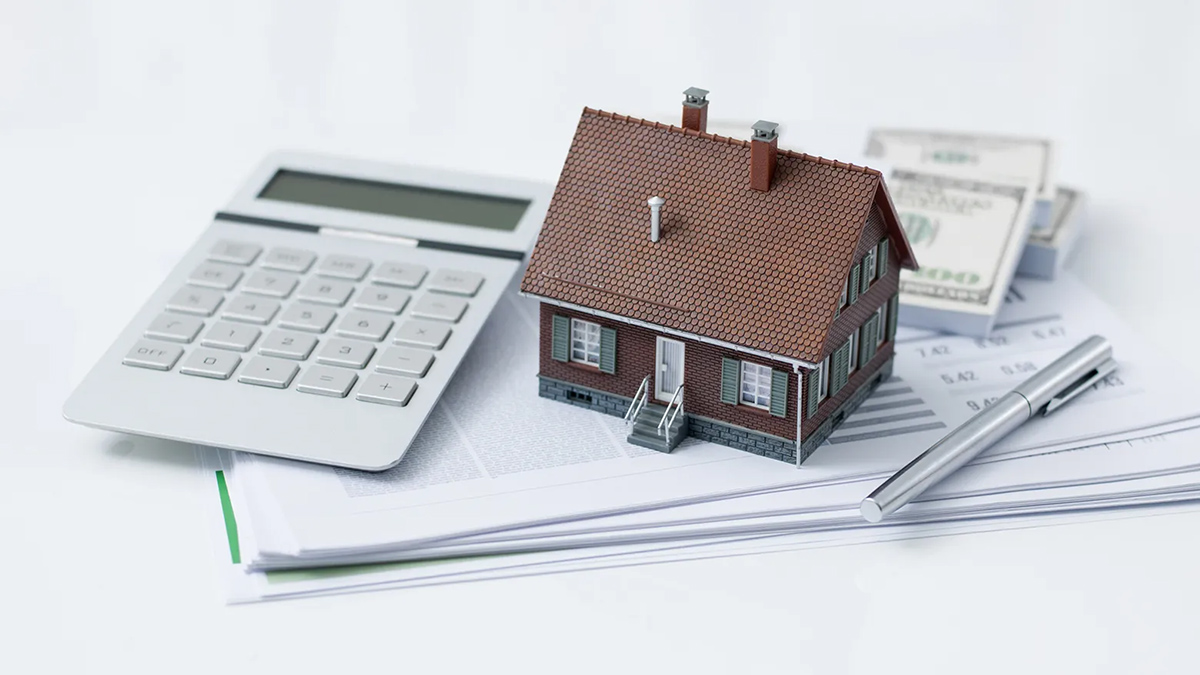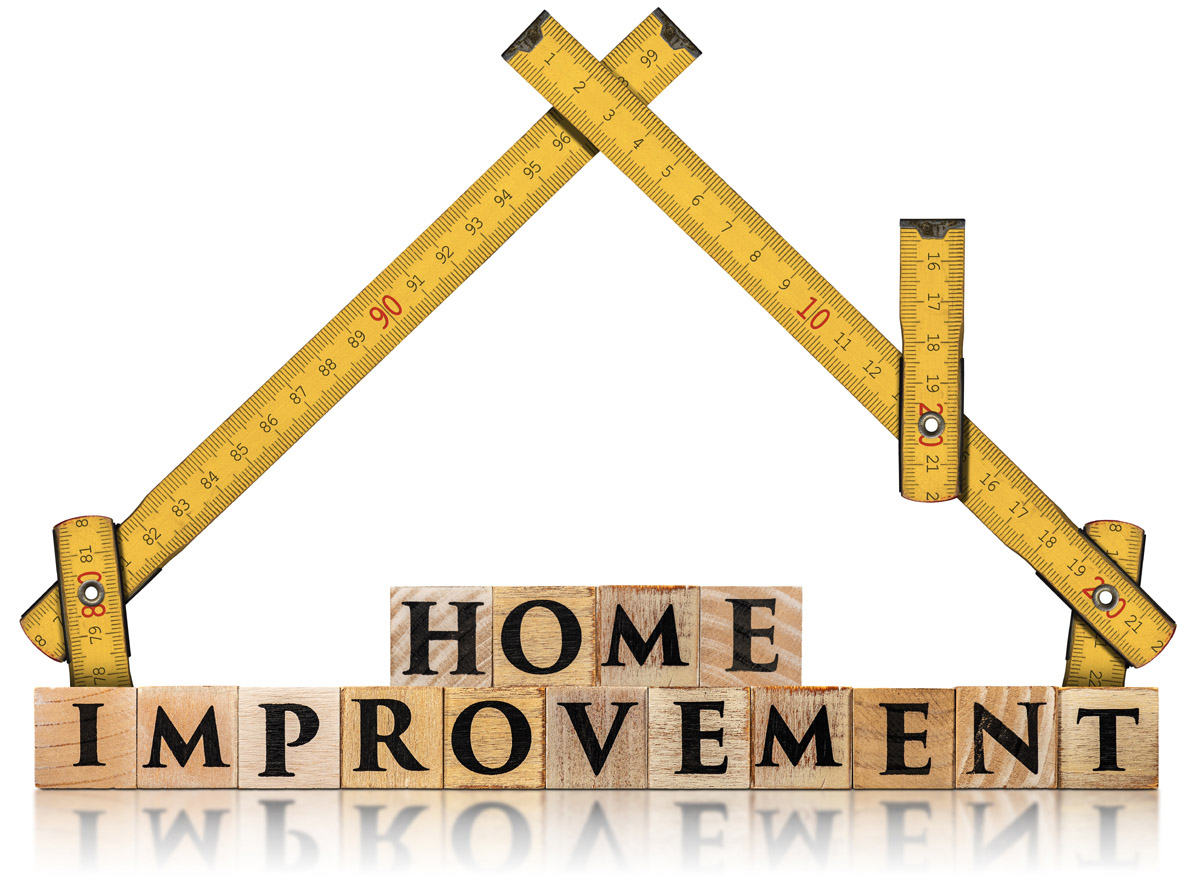Home>Renovation & DIY>Home Renovation Guides>What You Need To Qualify For A Home Improvement Loan In Texas


Home Renovation Guides
What You Need To Qualify For A Home Improvement Loan In Texas
Modified: January 9, 2024
Learn the essential qualifications for securing a home improvement loan in Texas with our comprehensive home renovation guide. Discover the key requirements and steps to finance your renovation project.
(Many of the links in this article redirect to a specific reviewed product. Your purchase of these products through affiliate links helps to generate commission for Storables.com, at no extra cost. Learn more)
**
Introduction
**
Embarking on a home improvement project can be an exciting endeavor, offering the opportunity to transform your living space and enhance its functionality. However, the financial aspect of such projects often necessitates external funding. In the state of Texas, obtaining a home improvement loan involves meeting specific qualifications to secure the necessary funds for your project.
Understanding the criteria for qualifying for a home improvement loan in Texas is crucial for individuals seeking to undertake renovation or remodeling initiatives. From credit score requirements to debt-to-income ratios, various factors come into play when applying for such a loan. This comprehensive guide aims to shed light on the essential qualifications necessary to secure a home improvement loan in the Lone Star State. Whether you're considering a kitchen remodel, bathroom upgrade, or a complete home renovation, knowing the requirements for obtaining a loan can pave the way for a successful and fulfilling project.
In the subsequent sections, we will delve into the specific qualifications and criteria that lenders typically consider when evaluating loan applications for home improvement projects in Texas. By understanding these requirements, you can position yourself for a successful loan application and, ultimately, turn your home improvement aspirations into reality. Let's explore the key factors that can influence your eligibility for a home improvement loan in Texas.
Key Takeaways:
- To qualify for a home improvement loan in Texas, maintain a good credit score, provide proof of stable income, and maximize your home equity. These factors can boost your chances of securing the funds you need for your renovation project.
- Understanding and managing your debt-to-income ratio is crucial when applying for a home improvement loan in Texas. By balancing your financial obligations and income, you can improve your eligibility and secure favorable loan terms.
Read more: How To Qualify For Home Improvement Loan
Credit Score Requirements
One of the primary factors that lenders consider when assessing eligibility for a home improvement loan in Texas is the applicant’s credit score. Your credit score serves as a reflection of your creditworthiness and financial responsibility, providing lenders with insight into your ability to manage debt and make timely payments.
In Texas, the credit score requirements for home improvement loans can vary depending on the lender and the type of loan you are seeking. Conventional home improvement loans typically require a minimum credit score of 620, while government-backed loans, such as those offered by the Federal Housing Administration (FHA), may have more lenient credit score requirements, often accepting scores as low as 580.
It’s important to note that a higher credit score not only increases your chances of qualifying for a home improvement loan but also enables you to secure more favorable terms, such as lower interest rates and higher loan amounts. Therefore, maintaining a healthy credit score through responsible financial management is crucial when seeking funding for home renovation projects in Texas.
Prior to applying for a home improvement loan, it’s advisable to review your credit report for any inaccuracies or discrepancies that could potentially impact your credit score. Addressing any issues and improving your credit score, if necessary, can bolster your eligibility and improve your prospects of securing a loan for your home improvement endeavors.
By understanding the credit score requirements and taking proactive steps to maintain or enhance your creditworthiness, you can position yourself for a successful loan application and gain access to the financial resources needed to bring your home improvement vision to life.
Income and Employment Verification
When applying for a home improvement loan in Texas, lenders typically require applicants to provide thorough documentation of their income and employment status. This verification process serves to demonstrate the borrower’s ability to repay the loan and ensures that they have a stable and reliable source of income.
For salaried individuals, this verification often entails providing recent pay stubs, W-2 forms, and tax returns to substantiate their income. Self-employed individuals may need to furnish additional documentation, such as profit and loss statements, business tax returns, and bank statements, to validate their income and financial stability.
Employment verification is equally essential, as lenders seek assurance that borrowers are steadily employed and capable of meeting their financial obligations. This typically involves contacting the applicant’s employer to confirm their employment status and tenure with the company. Additionally, self-employed individuals may need to provide evidence of their business ownership and operational history.
By meticulously verifying income and employment details, lenders can assess the borrower’s capacity to manage loan repayments and mitigate the associated risks. As a prospective borrower, ensuring that your income and employment information is accurate and well-documented can significantly expedite the loan approval process and bolster your credibility in the eyes of lenders.
Understanding the significance of income and employment verification underscores the importance of maintaining stable employment and diligently organizing financial records. By demonstrating a consistent income stream and employment stability, you can enhance your prospects of qualifying for a home improvement loan in Texas and realizing your renovation aspirations.
Home Equity
Home equity plays a pivotal role in the qualification process for a home improvement loan in Texas. Essentially, home equity refers to the difference between the current market value of your home and the outstanding balance on your mortgage. When seeking a home improvement loan, lenders often consider the amount of equity you have in your home as a key factor in the approval process.
Having substantial home equity can work to your advantage when applying for a home improvement loan, as it serves as collateral and provides a level of security for the lender. This equity can be leveraged to secure a loan, as it represents the portion of your home that you truly own outright, beyond the mortgage balance.
Lenders typically calculate the loan-to-value (LTV) ratio, which is the percentage of the home’s value that is mortgaged, to determine the amount of equity available for a home improvement loan. A higher LTV ratio indicates greater equity and may increase your eligibility for a loan, while a lower ratio may necessitate additional measures to secure the desired financing.
It’s important to note that home equity is built over time through mortgage payments and appreciation in property value. Therefore, homeowners who have diligently paid down their mortgage and experienced an increase in their home’s market value are likely to have a more substantial amount of equity at their disposal.
Understanding the significance of home equity underscores the importance of prudent financial management and property ownership. By maximizing your home equity through responsible mortgage repayment and property maintenance, you can enhance your prospects of qualifying for a home improvement loan in Texas and accessing the necessary funds to enhance your living space.
Before applying for a home improvement loan in Texas, make sure you have a good credit score, stable income, and a detailed plan for the renovations. Lenders will also consider the value of your home and your existing mortgage.
Loan-to-Value Ratio
When applying for a home improvement loan in Texas, lenders assess the loan-to-value (LTV) ratio to evaluate the risk associated with the loan and determine the amount of financing they are willing to extend. The LTV ratio is calculated by dividing the requested loan amount by the appraised value of the property.
A lower LTV ratio signifies a smaller loan amount in relation to the property’s value, indicating a higher level of equity and a lower risk for the lender. In contrast, a higher LTV ratio suggests a larger loan amount relative to the property’s value, potentially presenting a greater risk for the lender.
Lenders generally prefer lower LTV ratios, as they indicate a higher level of equity and a more secure investment. Therefore, borrowers with a lower LTV ratio are often viewed more favorably by lenders and may qualify for more competitive loan terms, such as lower interest rates and reduced fees.
For homeowners seeking a home improvement loan in Texas, understanding the significance of the LTV ratio is crucial. By maximizing their home equity and minimizing the requested loan amount, borrowers can effectively lower their LTV ratio and enhance their eligibility for favorable loan terms.
Additionally, some home improvement loan programs may impose specific LTV ratio limits, dictating the maximum percentage of the property’s value that can be financed. Being mindful of these limits and striving to maintain a favorable LTV ratio can significantly impact the success of a loan application and the overall cost of financing the home improvement project.
Ultimately, by comprehending the role of the LTV ratio and its implications for loan approval, homeowners in Texas can strategically position themselves to secure the necessary funding for their home renovation endeavors and achieve their desired improvements while optimizing their financial outcomes.
Property Appraisal
As part of the home improvement loan application process in Texas, property appraisal holds significant importance in determining the value of the home and, consequently, the amount of financing that can be obtained. An appraisal is a professional assessment of the property’s market value conducted by a licensed appraiser, providing an unbiased estimate based on various factors, including the property’s condition, location, and comparable sales in the area.
Lenders rely on property appraisals to ascertain the fair market value of the home, which in turn influences the loan-to-value (LTV) ratio and the maximum loan amount that can be extended. A higher appraised value can result in a more favorable LTV ratio, potentially increasing the available financing and improving the borrower’s loan terms.
It’s important for homeowners seeking a home improvement loan in Texas to recognize the impact of property appraisals on their loan prospects. Ensuring that the property is well-maintained, addressing any necessary repairs or enhancements, and providing accurate information about recent improvements can positively influence the appraisal outcome and bolster the case for securing the desired financing.
Furthermore, understanding the factors that appraisers consider when evaluating a property can empower homeowners to proactively enhance their home’s appeal and value. Elements such as curb appeal, interior condition, and recent renovations can all contribute to a favorable appraisal, potentially leading to a more advantageous loan package.
By recognizing the significance of property appraisals and taking steps to optimize the home’s market value, homeowners in Texas can position themselves for a successful home improvement loan application. A well-executed appraisal process can not only facilitate the attainment of financing but also contribute to a more favorable borrowing experience, enabling homeowners to embark on their renovation projects with confidence and financial prudence.
Debt-to-Income Ratio
When applying for a home improvement loan in Texas, lenders often scrutinize the applicant’s debt-to-income (DTI) ratio to assess their financial capacity and evaluate the level of risk associated with extending the loan. The DTI ratio is a measure of the borrower’s monthly debt obligations relative to their gross monthly income, providing insight into their ability to manage additional loan payments.
Lenders typically prefer borrowers with a lower DTI ratio, as it signifies that a smaller portion of their income is allocated to debt repayment, leaving more room for accommodating new loan obligations. A favorable DTI ratio not only enhances the borrower’s eligibility for a home improvement loan but also contributes to securing more competitive loan terms, such as lower interest rates and higher loan amounts.
To calculate the DTI ratio, lenders consider both the existing monthly debt payments, including mortgage, credit card, and other loan obligations, as well as the projected monthly payments for the home improvement loan. The total debt payments are then divided by the gross monthly income to arrive at the DTI ratio.
Understanding the significance of the DTI ratio underscores the importance of managing existing debt and maintaining a healthy balance between income and financial obligations. Prior to applying for a home improvement loan, borrowers can take proactive measures to reduce their DTI ratio, such as paying down existing debts and increasing their income, thereby improving their prospects of loan approval.
Furthermore, borrowers can explore the option of consolidating high-interest debts or refinancing existing loans to lower their monthly obligations and optimize their DTI ratio. By strategically managing their financial commitments, homeowners can position themselves for a more favorable loan assessment and increase their likelihood of securing the necessary funding for their home improvement projects in Texas.
Conclusion
Embarking on a home improvement journey in Texas entails navigating a multifaceted landscape of financial considerations and eligibility requirements. From credit score prerequisites to debt-to-income ratios, the qualifications for securing a home improvement loan demand a comprehensive understanding and strategic preparation. By delving into the intricacies of these prerequisites, homeowners can position themselves for a successful loan application and, ultimately, transform their living spaces into personalized havens of comfort and functionality.
Recognizing the pivotal role of credit score requirements sets the stage for proactive financial management, encouraging individuals to maintain a healthy credit profile and maximize their borrowing potential. Likewise, understanding the significance of income and employment verification underscores the importance of stable employment and diligent financial documentation, laying a solid foundation for loan approval.
Home equity emerges as a cornerstone of loan qualification, emphasizing the value of responsible mortgage management and property ownership. By leveraging home equity, homeowners can bolster their eligibility for favorable loan terms and gain access to essential funding for their renovation aspirations.
Moreover, the loan-to-value (LTV) ratio and property appraisal serve as critical determinants of financing feasibility, prompting homeowners to enhance their properties’ appeal and value to optimize their loan prospects. Meanwhile, the debt-to-income (DTI) ratio encapsulates the delicate balance between financial obligations and income, compelling borrowers to proactively manage their debt and income streams to secure the desired funding.
As homeowners in Texas navigate the terrain of home improvement loan qualifications, a proactive and informed approach can pave the way for a seamless and rewarding borrowing experience. By aligning with the criteria outlined in this guide, individuals can position themselves as strong candidates for home improvement financing, unlocking the potential to actualize their renovation visions and create living spaces that resonate with their unique preferences and lifestyle.
Ultimately, by embracing the nuances of loan qualifications and integrating them into their financial strategies, homeowners in Texas can embark on their home improvement endeavors with confidence, knowing that they have navigated the prerequisites with diligence and foresight, setting the stage for a transformative and fulfilling renovation journey.
Frequently Asked Questions about What You Need To Qualify For A Home Improvement Loan In Texas
Was this page helpful?
At Storables.com, we guarantee accurate and reliable information. Our content, validated by Expert Board Contributors, is crafted following stringent Editorial Policies. We're committed to providing you with well-researched, expert-backed insights for all your informational needs.















0 thoughts on “What You Need To Qualify For A Home Improvement Loan In Texas”